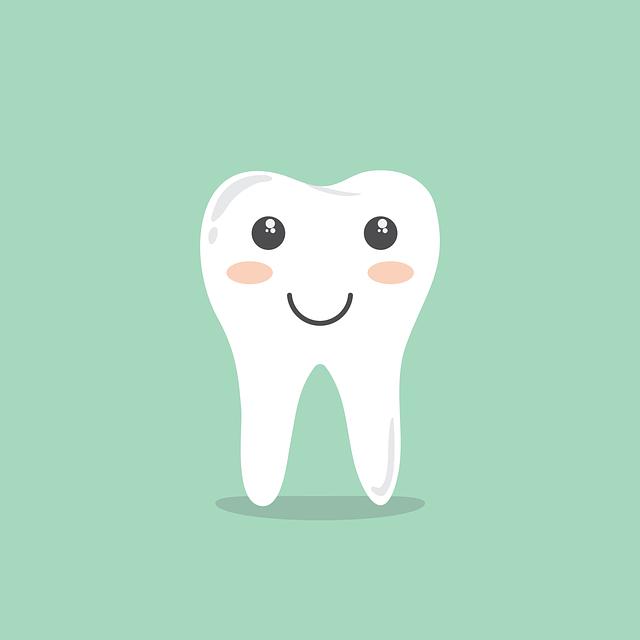Are you experiencing teeth grinding on SSRIs? Discover how to tackle bruxism head-on in our informative guide.
1. An Introduction to SSRI Medications: Understanding the Benefits and Side Effects
SSRI medications, also known as selective serotonin reuptake inhibitors, are commonly prescribed for the treatment of various mental health conditions. They work by increasing the levels of serotonin, a neurotransmitter in the brain, which helps regulate mood, emotions, and overall well-being. Understanding the benefits and side effects of these medications is important for anyone considering or currently taking them.
Benefits of SSRI Medications:
- Effective in managing symptoms of depression, anxiety, panic disorder, and obsessive-compulsive disorder (OCD).
- Improvement in mood, reducing feelings of sadness, hopelessness, and irritability.
- Helps restore a sense of enjoyment and interest in daily activities.
- Serves as a long-term treatment option for certain mental health conditions.
Side Effects of SSRI Medications:
- Nausea, dizziness, or headaches in the initial stages of treatment (usually subside within a few weeks).
- Changes in appetite, such as weight loss or weight gain.
- Sexual side effects, including reduced libido or difficulty achieving orgasm.
- Insomnia or drowsiness, which may vary depending on the individual and medication.
- Occasional gastrointestinal issues, such as diarrhea or constipation.
It is essential to remember that while SSRI medications have proven to be highly effective in treating various mental health conditions, they may not be suitable for everyone. Consulting with a healthcare professional is crucial to determine the most appropriate treatment plan and to discuss any concerns or potential risks.
2. The Hidden Side Effect: Unveiling Bruxism as a Common Complication of SSRI Treatment
Bruxism, the clenching or grinding of teeth, has recently emerged as a frequently encountered side effect of SSRI (Selective Serotonin Reuptake Inhibitor) treatment. Although SSRI medications are widely prescribed for their effectiveness in managing depression and anxiety disorders, the occurrence of bruxism during this treatment often goes unnoticed. However, it is essential to shed light on this hidden complication, as it can lead to significant dental damage and decreased quality of life for patients.
Studies have revealed that bruxism affects approximately 30% of individuals undergoing SSRI therapy, making it a prevalent problem. This involuntary jaw movement activity most commonly occurs during sleep but can manifest during wakefulness as well. The excessive clenching and grinding exert excessive pressure on teeth and jaw joints, resulting in tooth wear, cracks, or even fractures. In severe cases, bruxism can contribute to the development of temporomandibular joint disorder (TMJ), leading to chronic pain and impaired jaw functionality.
Recognizing the signs and symptoms of bruxism is crucial for early intervention. Patients undergoing SSRI treatment should be educated about the potential risk of bruxism and informed about the importance of regular dental check-ups. Additionally, healthcare providers should be proactive in inquiring about temporomandibular joint pain and other oral health changes during medication follow-ups. By addressing this hidden side effect, we can develop comprehensive strategies to minimize its impact and ensure a better overall outcome for patients undergoing SSRI treatment.
3. Recognizing Bruxism: Unmasking the Signs and Symptoms
- Grinding or clenching of teeth, also known as bruxism, often goes unnoticed but can cause significant damage if left untreated.
- One of the most common signs of bruxism is waking up with a headache, jaw pain, or facial muscle soreness. These symptoms occur as a result of excessive pressure being applied to the jaw while grinding or clenching.
- Another indicator of bruxism is worn-down or flattened teeth. Over time, the constant friction and pressure from grinding can lead to tooth enamel erosion and even fractures.
- Sensitive teeth can also be a sign of bruxism. The grinding action can expose the dentin layer, causing discomfort when consuming hot or cold foods and drinks.
- Bruxism often happens unconsciously during sleep, making it difficult to self-diagnose. However, if you share a bed with a partner, they may notice the sound of grinding or clenching during the night.
- Muscle tension and tightness in the jaw area, along with frequent jaw clicking or popping, are additional symptoms of bruxism that should be taken seriously.
- If you experience any combination of the above signs and symptoms, it is essential to consult a dentist for a proper diagnosis and treatment plan.
Bruxism may seem harmless, but it can have serious consequences for your oral health if left unaddressed. Understanding and recognizing the signs and symptoms will help you take appropriate action to protect your teeth and jaw from further damage.
4. The Mechanism Behind Bruxism: Unlocking the Connection with SSRI Medications
Bruxism, the involuntary grinding or clenching of teeth, has long puzzled both dentists and patients. Recent research has revealed a fascinating connection between this common condition and selective serotonin reuptake inhibitor (SSRI) medications. Let’s delve into the mechanism behind bruxism and how it relates to the use of SSRIs.
1. SSRIs and Serotonin Imbalance: SSRIs are commonly prescribed antidepressants that work by increasing the levels of serotonin, a neurotransmitter, in the brain. However, this serotonin imbalance can also affect other parts of the body, leading to various side effects.
2. Impact on the Central Nervous System: The central nervous system plays a crucial role in regulating muscle movement. When serotonin levels rise due to SSRIs, it can disrupt the delicate balance in this system, causing involuntary muscle contractions. Bruxism is one such manifestation of this disturbance, where the jaw muscles contract and cause grinding or clenching of teeth, often during sleep.
3. Potential Solutions: If you are experiencing bruxism as a side effect of SSRIs, discuss it with your healthcare provider. They may suggest adjusting the dosage, changing the medication, or prescribing a muscle relaxant to mitigate the symptoms. Additionally, incorporating stress-reducing techniques like exercise, meditation, or cognitive-behavioral therapy can help manage bruxism associated with serotonin imbalance.
5. Confronting the Challenge: Exploring the Impact of Bruxism on Oral Health
Bruxism, or teeth grinding, can have a significant impact on oral health. By exploring this challenge, we can gain valuable insights into the consequences and potential strategies to address it.
1. Dental complications:
- Excessive grinding can lead to teeth becoming worn down, damaged, or even fractured.
- It can also cause sensitivity to temperature and touch, making it uncomfortable to enjoy hot or cold drinks.
- Chronic bruxism may result in jaw pain, headaches, and earaches due to the strain placed on the temporomandibular joint (TMJ).
2. Effects on sleep quality:
- Bruxism often occurs during sleep, impacting both the grinder and their sleep partner.
- Noisy grinding sounds can disrupt sleep patterns, leading to persistent fatigue and daytime sleepiness.
- For those with severe bruxism, additional sleep disorders like sleep apnea may emerge, further compromising overall well-being.
3. Available interventions:
- Wearing a custom-made mouthguard can help protect teeth from bruxism-related damage during sleep.
- Stress management techniques, such as meditation or counseling, can reduce anxiety and contribute to minimizing teeth grinding.
- Avoiding stimulating substances like caffeine and alcohol can also mitigate bruxism symptoms.
Understanding the impact of bruxism on oral health is essential for both patients and healthcare professionals. By adopting preventative measures and seeking appropriate treatment, individuals can effectively confront this challenge and maintain optimal oral health.
6. A Ray of Hope: Strategies for Managing SSRI-Induced Bruxism
SSRI-induced bruxism, the involuntary grinding or clenching of teeth, can be an uncomfortable and distressing side effect of selective serotonin reuptake inhibitors (SSRIs), a commonly prescribed medication for depression and anxiety. However, there are strategies that can help manage this condition and provide relief. Here are some effective approaches:
Awareness and Relaxation Techniques:
- Be mindful of your jaw and teeth throughout the day, especially during periods of stress.
- Practice relaxation techniques such as deep breathing, meditation, and yoga to reduce jaw tension and promote overall relaxation.
- Identify and avoid triggers that may worsen bruxism, such as caffeine, alcohol, and tobacco.
Dental Interventions:
- Consult with a dentist who specializes in bruxism to discuss potential treatment options.
- A custom-made mouthguard or splint can help protect your teeth from the grinding action and alleviate symptoms.
- Regular dental check-ups can help identify any dental issues caused by bruxism and ensure appropriate treatment.
Medication Adjustments:
- Speak to your healthcare provider about adjusting your SSRI dosage or switching to an alternative medication if bruxism persists or becomes severe.
- It is crucial to never alter or stop your medication without proper medical guidance.
- Supplementing your SSRI with medications such as benzodiazepines may help manage bruxism symptoms, but this should only be done under the supervision of a healthcare professional.
Remember, managing SSRI-induced bruxism requires a multi-faceted approach that combines awareness, relaxation techniques, dental interventions, and appropriate medication adjustments. With persistence and the right strategies, you can alleviate the discomfort and find relief from this troubling side effect.
7. Dental Intervention: Collaborative Approaches for Effective Treatment
Collaborative approaches in dental intervention play a crucial role in ensuring effective treatment outcomes. By combining the expertise of multiple dental professionals, patients receive comprehensive care that addresses their unique dental needs. Here are some key considerations when it comes to adopting collaborative approaches:
- Teamwork: Collaboration among dentists, orthodontists, periodontists, and other specialists allows for a holistic approach to treatment planning. Each professional brings their unique expertise to the table, resulting in a more accurate diagnosis and customized treatment plan.
- Communication: Effective communication between dental professionals is vital for successful collaborative interventions. Clear exchange of information regarding a patient’s medical history, diagnostic findings, treatment progress, and future plans ensures that all team members are on the same page, leading to better outcomes.
- Continuity of care: Collaborative interventions promote continuity of care, as patients receive seamless treatment from one specialist to another. This reduces the risk of gaps in treatment and enhances the overall patient experience.
It is worth emphasizing that collaborative approaches in dental intervention not only benefit the patients but also provide an avenue for dental professionals to learn and grow together. By pooling their collective knowledge and experience, dental teams can continue to improve their understanding and expertise, ultimately leading to enhanced patient care.
8. Taking Control: Lifestyle Adjustments to Alleviate Bruxism Symptoms
There are several lifestyle adjustments you can make to alleviate the symptoms of bruxism. These adjustments can help reduce the frequency and intensity of teeth grinding and jaw clenching, promoting better oral health. Consider incorporating the following habits into your daily routine:
- Stress management: Since stress is often a major contributing factor to bruxism, finding ways to manage it can be helpful. Try relaxation techniques such as deep breathing exercises, yoga, or meditation. Engaging in activities that you enjoy, like hobbies or listening to music, can also assist in reducing stress levels.
- Dietary changes: Certain foods and beverages, particularly those high in caffeine and alcohol, can exacerbate bruxism symptoms. Limiting or avoiding these substances can help alleviate the condition. Additionally, cutting back on chewing gum or other hard foods can minimize jaw strain.
- Oral habits: Developing good oral habits can reduce the risk of further damaging your teeth and jaw. Avoid chewing on objects like pens or pencils, as this can promote teeth grinding. Furthermore, refraining from biting your nails or chewing on ice can help alleviate stress on the jaw joint.
By implementing these lifestyle adjustments, you can take control of your bruxism symptoms and improve your overall oral health. However, it’s important to note that these lifestyle changes might not fully eliminate the condition, so it’s advisable to consult a dental professional for a comprehensive treatment plan.
9. Expert Insights: Advice from Dentists and Healthcare Professionals
When it comes to dental care, there is no one better to turn to than dentists and healthcare professionals who have years of experience in the field. We have reached out to some of these experts and gathered their valuable insights and advice to help you maintain excellent oral health. Here are some key takeaways from our conversations:
- Regular brushing and flossing: Dentists unanimously emphasize the importance of brushing your teeth twice a day and flossing daily. This routine helps remove plaque and prevents dental issues such as cavities and gum disease.
- Proper technique matters: Simply brushing and flossing is not enough; it’s crucial to use the correct technique. Dentists recommend using a soft-bristled toothbrush with fluoride toothpaste and a gentle circular motion when brushing. As for flossing, they advise using a gentle back-and-forth motion to reach between teeth effectively.
- Regular dental check-ups: Dentists strongly urge everyone to schedule regular dental check-ups, ideally every six months. These visits allow professionals to detect any potential problems early, provide necessary treatments, and offer personalized advice for improved oral hygiene.
By incorporating these expert insights into your oral care routine, you can take significant steps towards achieving optimal dental health. Remember, prevention is always better than cure, and with the guidance of these experienced professionals, you are on the right path to a healthier smile.
10. Empowering Patients: Navigating the SSRI-Bruxism Journey with Confidence
Managing bruxism, a condition characterized by teeth grinding or clenching during sleep, can be an overwhelming journey for patients. However, with a comprehensive understanding of the condition and the use of SSRI medications, patients can navigate this challenge with confidence. Here, we provide valuable insights and tips that empower patients to take control of their SSRI-bruxism journey.
1. Educate yourself about bruxism: Gaining knowledge about bruxism enables patients to better understand the causes, symptoms, and potential risk factors associated with this condition. By recognizing the impact of bruxism on their oral health, patients can approach their treatment journey with confidence and knowledge.
2. Recognize the role of SSRIs: Selective serotonin reuptake inhibitors (SSRIs) are commonly prescribed for various mental health conditions, but it’s essential to acknowledge their potential side effect of bruxism. Understanding the link between SSRIs and teeth grinding allows patients to engage in informed discussions with their healthcare providers, ensuring an optimal treatment plan.
3. Communicate openly with your healthcare provider: Effective communication is crucial in managing SSRI-induced bruxism. Openly share any concerns or questions you may have about your medication or its side effects. Your healthcare provider can offer tailored advice, potential alternatives, or adjust the dosage to minimize the impact of bruxism.
4. Explore complementary therapies: In addition to medication management, there are complementary therapies that can alleviate bruxism symptoms. Techniques like stress reduction, relaxation exercises, and wearing a protective dental splint at night can provide significant relief. Discuss these options with your dentist or healthcare provider to build a comprehensive treatment plan.
5. Regular dental check-ups: Maintaining regular dental visits is crucial for patients managing bruxism and taking SSRIs. Dentists can monitor the impact of teeth grinding on oral health, provide preventive measures, and offer guidance on maintaining proper dental hygiene.
By applying these suggestions, patients can navigate the SSRI-bruxism journey with confidence, prioritizing their oral health and overall well-being. Remember, being an informed and proactive patient is a key step towards effective management and a brighter, healthier future.
In conclusion, bruxism is a common side effect of SSRIs. Awareness and early intervention are key in minimizing its impact. Regular dental check-ups and communication with healthcare professionals can help address this challenge effectively. Remember, while SSRIs have immense benefits, being proactive about managing bruxism is vital for overall well-being.







